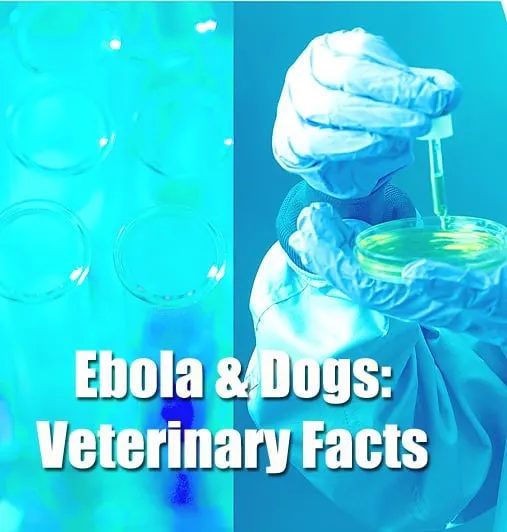
We know that many of you are following the news about Ebola. Living in Texas, we see it not only on the national news but the local news as well, as the only cases in the US have been found in Dallas.
Today we received this list of excellent information from BluePearl Veterinary Partners about Ebola and dogs. Two of the recent health care workers have had dogs; Spain recently euthanized a dog for being exposed to Ebola, and the dog of a Texas nurse who became infected with Ebola is currently in quarantine.
“When it comes to Ebola and how this infectious disease interacts with our pets, there really isn’t a ton of information available,” said Dr. Jennifer Welser, chief medical officer of BluePearl Veterinary Partners. “However, we’ve done our best to put together a list of the important things we do currently know.”
- Diseases that can pass between humans and animals are referred to as zoonotic diseases . This is important because 62 percent of American households have at least one pet according to a 2012 Humane Society survey. Because of this, veterinarians play a vital role in recognizing and preventing the spread of disease.
- Ebola is zoonotic, but the extent to which it actually affects animals is not well known. According to the Centers for Disease Control and Prevention, scientists believe that the first patient became infected through contact with an infected animal, such as a fruit bat or primate (apes and monkeys), which is called a spillover event. Person-to-person transmission follows and can lead to large numbers of affected persons. In the current West African epidemic, animals have not been found to be a factor in ongoing Ebola transmission.
- As for dogs and cats becoming infected with Ebola,there have been no reports of dogs or cats becoming sick with Ebola, even though they may develop antibodies from exposure to the disease.Certainly a greater understanding of the effects of Ebola on dogs and cats is needed.
- According to the CDC, the risk of an Ebola outbreak affecting multiple people in the United States is very low. Therefore, the risk to pets is also very low. Even in areas in Africa where Ebola is present, there have been no reports of dogs and cats becoming sick with Ebola.
- Beyond the more common household pets, some people do keep monkeys as pets. According to the CDC, monkeys are at risk for Ebola. Symptoms of Ebola infection in monkeys include fever, decreased appetite and sudden death. Monkeys should not be allowed to have contact with anyone who may have Ebola. Healthy monkeys already living in the United States and without exposure to a person infected with Ebola are not at risk for spreading Ebola.
- If there is a pet in the home of an Ebola patient, the CDC recommends that veterinarians, in collaboration with public health officials, evaluate the pet’s risk of exposure. Appropriate measures, such as closely monitoring the exposed pet while taking necessary precautions, should be put in place.
Scientists and veterinarians with the American Veterinary Medical Association, the U.S. Department of Agriculture, the CDC and many other partners are continuing to work together to develop additional guidance for the U.S. pet population.
“Besides being doctors to animals, veterinarians play a key role in public health and disease prevention,” Welser said. “Veterinarians throughout the U.S. and around the world work together with human health officials to keep the public safe.”
Additional Information as of Oct. 17
Today we received another press release with more information from former AVMA President Dr. Douglas G. Aspros, DVM:
Ebola Transmission only comes from Direct Contact with an Infected Individual
Dr. Aspros wants to make sure people understand the basics: the disease is spread through physical contact with an infected person. That means you must have close physical contact with someone showing signs of infection. Unless your pet was in close personal contact with an individual who was recently working in West Africa, they are not in any danger of potentially contracting the virus.
Dogs have not developed the disease, even in West Africa
Dr. Aspros points to the research and says, “There is evidence that dogs in Africa exposed to animals who died from Ebola infections generated antibodies to the virus…There have been no human cases of Ebola associated with dogs…all dogs that were tested remained asymptomatic, there was no evidence of transmission. “
Any Ebola patient’s pet in the US will be quarantined; NOT euthanized
Dr. Aspros says, “The World Small Animal Veterinary Association (WSAVA) has called for quarantine and not euthanasia for dogs exposed to human cases, and that further studies be done…It is inhumane to automatically euthanize dogs that have been in contact with an infected human patient.”
For more information about keeping your pet safe and healthy visit the AVMA question and answer page HERE.
- Sighthound Day - September 27, 2024
- Cottage Cheese Ice Cream for Dogs Recipe - July 29, 2024
- New Dog Treat Cookbooks! - June 17, 2024
